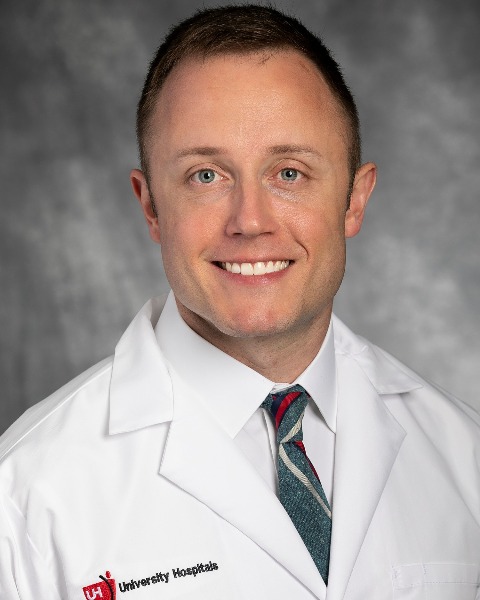Endocrine/Head and Neck
CME
31: Factors Predicting Immunotherapy Utilization for Metastatic Merkel Cell Carcinoma from 2015-2018

James Sun, MD (he/him/his)
Chief Resident
University Hospitals Cleveland Medical Center
Cleveland, Ohio, United StatesDisclosure(s): No financial relationships to disclose

James Sun, MD (he/him/his)
Chief Resident
University Hospitals Cleveland Medical Center
Cleveland, Ohio, United StatesDisclosure(s): No financial relationships to disclose

Hanna Kakish, Doctor of Medicine (he/him/his)
Research fellow
University Hospitals, Cleveland Medical Center
Cleveland, Ohio, United StatesDisclosure information not submitted.
- JA
John B. Ammori, M.D.
Associate Professor of Surgery/Program Director, Division of Surgical Oncology
University Hospitals Cleveland Medical Center/Case Western Reserve University, United StatesDisclosure information not submitted.

Richard S. Hoehn, MD
Assistant Professor of Surgery
University Hospitals, Cleveland Medical Center
Cleveland, Ohio, United StatesDisclosure(s): No financial relationships to disclose
- LR
Luke D. Rothermel, M.D., M.P.H.
Assistant Professor of Surgery, Division of Surgical Oncology
University Hospitals, Cleveland Medical Center, United StatesDisclosure information not submitted.
Abstract Presenter(s)
First Author(s)
Author(s)
Advanced Merkel Cell Carcinoma (MCC) carries a poor prognosis, but outcomes have improved with immune checkpoint inhibitor (ICI) therapy. The first FDA-approved ICI in 2017 led to increased use for advanced MCC. We investigated real-world utilization and survival outcomes of immunotherapies in a contemporary cohort.
Methods:
Using the NCDB, we identified 7,551 patients with MCC between 2015-2018 with stage IV disease and known status of systemic therapy. The primary outcome was immunotherapy use. Univariate and multivariate analyses were used to determine predictors of immunotherapy usage. Overall survival (OS) was compared for patients receiving immunotherapy, chemotherapy, or no systemic therapies.
Results:
We identified 470 stage IV MCC patients with known systemic treatments: 157 patients received immunotherapy, 135 received chemotherapy, and 178 received no systemic therapy. Age, sex, race and socioeconomic status did not affect immunotherapy use. Patients treated at academic centers (55%) were more likely to receive immunotherapy, followed by comprehensive community cancer centers (27%, p=0.005). Treatment at high-volume centers was also associated with immunotherapy use (36%, p< 0.001). Adjusting for demographic, clinical, and facility factors, high facility volume significantly predicted immunotherapy use (OR 2.6; p=0.04). Charlson comorbidity index ≥2 and Medicaid insurance were negatively associated with immunotherapy treatment (both OR 0.4, p< 0.05). Median OS was 18.4, 11.8, and 6.6 months, among patients who received immunotherapy, chemotherapy, or no systemic therapy, respectively (p < 0.001, Figure). On Cox multivariate survival analysis, immunotherapy treatment was the only factor associated with improved OS (HR=0.62, p=0.01).
Conclusions:
Immunotherapy improves overall survival for patients with stage IV MCC, outperforming chemotherapy in clinical trials. Treatment at high-volume, academic cancer centers predicted immunotherapy utilization in our analysis suggesting that familiarity with this rare disease is essential to achieving optimal outcomes for metastatic MCC.
Learning Objectives:
- Understand treatment options for advanced Merkel Cell Carcinoma
- Describe benefit of immunotherapy for advanced Merkel Cell Carcinoma
- Discuss factors predicting immunotherapy therapy for advanced Merkel Cell Carcinoma
